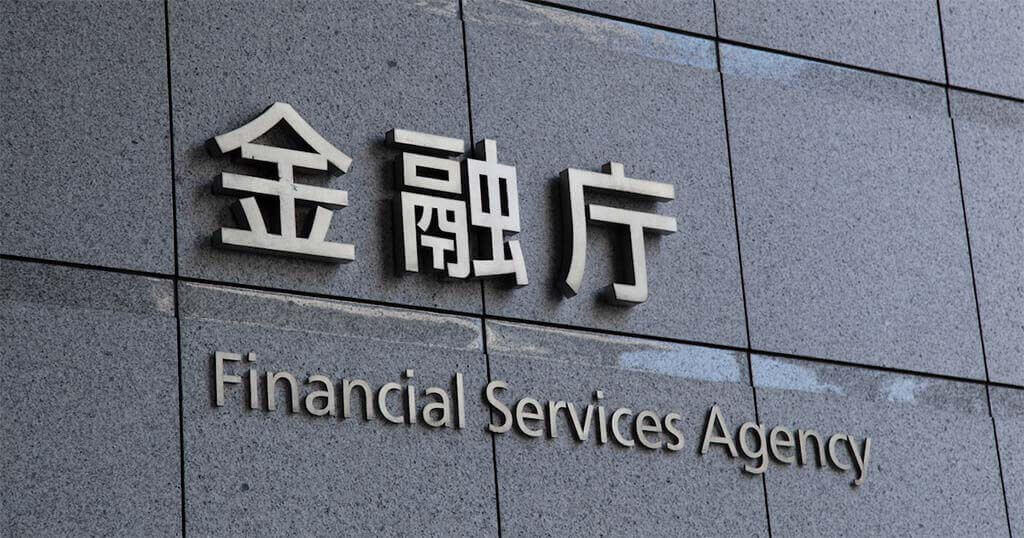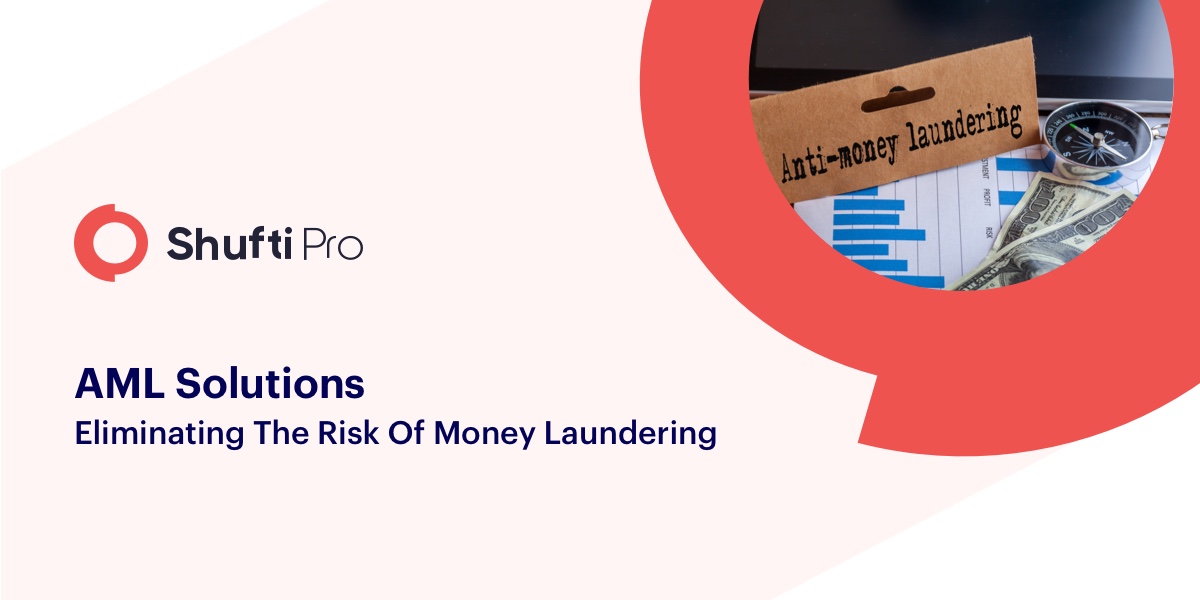Blog, Fraud Prevention
4 Fraud Prevention Tips For Your E-commerce Business this Holiday Season
With the holiday shopping season in full swing, e-commerce fraud risk is a glaring reality that n...
 Explore More
Explore More
Blog
Identification, Verification and Authentication – Cut from the same cloth
The modern era of technology has brought so many frauds to light. The digitized world has urged b...
 Explore More
Explore More
Blog
Shufti’s Address Verification Service – A Key Step in Digital Identity Verification
The rapidly developing technology of today is altering how consumers browse for things online. Th...
 Explore More
Explore More
Blog
Securing The Digital Landscape with Electronic Identity Verification Services
With a surge in identity document forgery, the likelihood of onboarding a criminal has grown subs...
 Explore More
Explore More
Blog
Shufti’s Address Verification Service – A Key Step in Digital Identity Verification
The rapidly developing technology of today is altering how consumers browse for things online. Th...
 Explore More
Explore More
Blog
KYC and AML Compliance – Addressing the Challenge of Money Laundering in Online Trading Platforms
An online trading platform is a program where shareholders and traders deal through financial int...
 Explore More
Explore More
Blog, Financial Crime / AML
FSA demands greater AML Compliance from Japanese Crypto Exchanges
In a recent move, Financial Services Agency (FSA), the Japanese Financial regulator, has demanded...
 Explore More
Explore More
Blog
The Definitive Guide to Anti-Money Laundering & Countering of Terrorist Financing
In this modern globalized era, money launderers, terrorist financiers and other criminal elements...
 Explore More
Explore More
Blog
Sim Swap Fraud: A new battle in the war of your Identity
In our connected world, we are using mobile devices for communication, work, banking, and enter...
 Explore More
Explore More
Blog
EU’s Smart ID Wallet – Paving the Way for a Seamless Digital World
A few days back, the European Union Commission published a draft for digital ID wallets for all t...
 Explore More
Explore More
Blog
Instant Client Onboarding with E-KYC Screening
Technological Advancement and its Influence
The world needs to constantly evolve in order to surv...
 Explore More
Explore More
Blog
Stronger Global Identity Coverage… Where it Counts
In today’s globalized economy, businesses are striving to expand their footprint across borders. ...
 Explore More
Explore More
Blog
The Future of Customer Onboarding Post-COVID-19 Pandemic
The COVID-19 pandemic has changed our lives to the fullest and businesses have suffered a lot as ...
 Explore More
Explore More
Blog
5 Effective Ways Shufti Combats First-party Fraud
After analysing fraud incidents of the previous year and the current one, we observed an interest...
 Explore More
Explore More
Blog
A Brief Insight into the AML and CFT Framework of Thailand
Thailand has become quite a popular and well-reputed financial hub, attracting investors worldwid...
 Explore More
Explore More
Blog
Sim Swap Fraud: A new battle in the war of your Identity
In our connected world, we are using mobile devices for communication, work, banking, and enter...
 Explore More
Explore More
Blog
A Brief Overview of 2021 AML Trends
Over the last decade, regulatory scrutiny on Anti-Money Laundering (AML) compliance has remained ...
 Explore More
Explore More
Blog
A Statistical Analysis of Prevalent Crimes in the Global Financial Industry – [2022 Overview]
Over the past few years, the financial industry has witnessed significant technological changes, ...
![A Statistical Analysis of Prevalent Crimes in the Global Financial Industry – [2022 Overview] A Statistical Analysis of Prevalent Crimes in the Global Financial Industry – [2022 Overview]](https://shuftipro.com/wp-content/uploads/b-img-statistics-comp.png) Explore More
Explore More
Blog
AML Compliance in the UK’s Financial Sector – What Shufti Offers
The UK is known in the global financial paradigm for being both a financial hub and the dirty mon...
 Explore More
Explore More
Blog, Identity & KYC
4 Ways KYC Banking Regulations are Shaping the Future
Know Your Customer (KYC) regulations are vital for the banking system. Money laundering, depositi...
 Explore More
Explore More
Blog
Acquiring a Security Foothold in Hybrid Workspaces with Facial Recognition
In 2020, companies experimented with different ways of working as the result of lockdown and Covi...
 Explore More
Explore More
Blog
AML Compliance – Sharpening Focus on FinCrime in the Payments Industry
Conventional payment services are embracing technological transformation, which is significantly ...
 Explore More
Explore More
Blog
What are chargeback frauds and what do they mean for businesses?
The world we live in no longer seems to be honest and fair. A large number of individuals are par...
 Explore More
Explore More
Blog
A Go-To Guide to Proof of Address Verification in 2024
Customer identity verification is significant in today’s digital world – from buying produc...
 Explore More
Explore More
Blog
Safeguarding the Art Market with Shufti’s AML Screening Solution
Non-fungible tokens (NFTs), blockchain-powered title deeds tied to a virtual or physical asset, h...
 Explore More
Explore More
Anti Money Laundering, Blog, Financial Crime / AML, Reg Tech
EU’s Sixth Anti-Money Laundering Directive (AMLD6)
Summary: Sixth Anti-Money Laundering Directive (AMLD6) highlights a stringent framework to combat...
 Explore More
Explore More
Blog
Top 5 Cryptocurrency Trends to Look Out for in 2023
2022 has been one of the most turbulent years for the cryptocurrency sector. For starters, Bitcoi...
 Explore More
Explore More
Blog
Transforming the KYC Experience Using Automated Document Verification Checks
In 2021, reported fraud losses were $5.8 billion, a more than 70% rise in a single year. As ident...
 Explore More
Explore More
Blog
Prevailing Identity Fraud in Telecom Sector – How Shufti Can Reduce the Risks
The telecommunication industry holds significance for the information sector as it is primary inf...
 Explore More
Explore More
Blog
Combating Identity Theft in On-Demand Services with Shufti’s KYC Solution
Transition is the only thing that is inevitable in the universe. Every passing day is changing ou...
 Explore More
Explore More
Blog
5 Tech Upgrades That Can Revamp Your Customer Onboarding Process
When businesses brainstorm ways to scale, they generally think about focusing more on sales. Howe...
 Explore More
Explore More
Blog, Identity & KYC
Which KYC Documents are Required for Customer Verification?
Name, Rank, Brigade, and Serial Number. That’s the only information military organizations across...
 Explore More
Explore More
Blog
Know Your Patient (KYP) – Effective Way to Prevent Identity Fraud and Safeguard Health Care Services
Like other industries, the medicare industry is also experiencing digitization. However, the heal...
 Explore More
Explore More
Blog
High-Risk Customers in Banking and How EDD Can Help Identify Them
In this age of digitisation, banks and other financial institutions face a high risk of money lau...
 Explore More
Explore More
Blog
Know Your Patient – Balancing Security, Customer Experience and Compliance in the Healthcare Sector
As the healthcare industry continues to offer life-critical services while making efforts to impr...
 Explore More
Explore More
Blog, Identity & KYC
Digital ID Verification
The Current Situation
Digital ID Verification is the key to securing your business in thes...
 Explore More
Explore More
Blog
The Looming Threat of Deepfake Apps for the Financial Industry
Deepfakes gained prominence back in 2017 when an anonymous Reddit user manipulated Google’s open-...
 Explore More
Explore More
Blog
Holiday Season – The Time of the Year When Frauds Soar Sky High
Despite being the “most wonderful time of the year”, the holiday season is known to have the high...
 Explore More
Explore More
Blog
How E-KYC is Overcoming the Hurdles of Financial Inclusion
The challenges associated with the global pandemic have risen at a bewildering speed and yet ther...
 Explore More
Explore More
Blog, Identity & KYC
What are the Different Types and Solutions of ID Verification?
Customer identification is not an option for some businesses, it’s a must. Ignoring due diligence...
 Explore More
Explore More
Blog, Identity & KYC
4 Know Your Customer (KYC) Strategies to adopt in 2019
Digital fraud haunted the cyberspace in 2018 with the majority of online frauds originating from ...
 Explore More
Explore More
Blog
eKYC: Transforming ID Verification for Enhanced Security and A Seamless Customer Experience
Governments have mandated various businesses, including financial institutions, to thoroughly und...
 Explore More
Explore More
Blog
Telehealth Services and Sophisticated Crimes – How Shufti Can Help Health Centers
The speed of innovation has never been faster. Re-emerging from a global pandemic, busi...
 Explore More
Explore More
Blog
How Shufti’s KYC Solution Can Ensure Compliance and Help in Battling Identity Fraud
With booming technology and rapid digitization, a large number of businesses are adopting the dig...
 Explore More
Explore More
Blog
Identity Verification vs Authentication: The Key Differences
Organisations today face significant concerns regarding data breaches and identity theft. Nearly ...
 Explore More
Explore More
Blog
A Brief Insight into Netherlands’ Cryptocurrency Regulations
Just like other European countries, the Netherlands is also a notable financial center making it ...
 Explore More
Explore More
Blog
KYC in Crypto Exchanges – Hitting the Nail on the Head
A few years back, startups related to ICOs (Initial Coin Offerings) were in full swing, driving t...
 Explore More
Explore More
Blog
The Truth Around DeFi Compliance – Bridging the Transparency Gap
Financial markets around the world have seen increased popularity with the advent of decentralise...
 Explore More
Explore More
Blog
AML Screening for Online Gambling Platforms – Placing the Bets on Regulatory Compliance
With technology evolving every day, online gambling is one of the sectors that has revolutionized...
 Explore More
Explore More
Blog
Protecting eCommerce Platforms and Mitigating Crime Risks with Shufti’s IDV Solution
The term e-commerce was tossed back in the 1960s, with the rise of electronic commerce in which t...
 Explore More
Explore More
Blog, Identity & KYC
Enhanced Due Diligence: Ensuring KYC and Regulatory Scrutiny
Enhanced Due Diligence: The adoption of innovative solutions in businesses today, should not have...
 Explore More
Explore More
Blog
Digital COVID Certificate Verification: Prevalent Problems and Viable Solutions
Following the rollout of viable vaccines to combat COVID-19, the prospects of normalcy are on the...
 Explore More
Explore More
Blog, Identity & KYC
7 Ways to Protect Your Children from Identity Theft
Living in the digital world, the word “Identity theft” makes us more than a little nervous. Knowi...
 Explore More
Explore More
Blog
The UK, US & Singapore – A Spotlight on the Crypto Regulations
Non-compliance with anti-money laundering regulations has been an issue for the finance and crypt...
 Explore More
Explore More
Blog
Cryptocurrency Exchanges and negative KYC Compliance
KYC & AML Compliances are not being upheld by almost 68% of the cryptocurrency exchanges arou...
 Explore More
Explore More
Blog
Fighting Financial Crimes and Securing Gambling Services with Shufti’s AML Screening Solution
Historically, the measures to curb money laundering and terrorist financing had only been only im...
 Explore More
Explore More
Blog
Top 5 Industries that AI will Transform in 2021
Artificial intelligence is becoming a comprehensive and encyclopedic term to describe any innovat...
 Explore More
Explore More
Blog
Youtube Stepping up to Protect Minors’ Data Online
The explosion of the internet and mobile devices has paved new ways for marketers and Cybercrimin...
 Explore More
Explore More
Blog
Know Your Patient – Curbing Healthcare Fraud through Identity Verification
With global digitization and emerging technologies, the healthcare sector has adopted a variety o...
 Explore More
Explore More
Blog
Latest Gaming & Gambling Regulations Worldwide and the Role of Age Verification
Online gaming has become more popular since COVID-19. The pandemic forced people to stay indoors,...
 Explore More
Explore More
Blog
Top 13 Cybersecurity Predictions for 2020
Cybersecurity threats are ostensibly ubiquitous in this internetworking infrastructure. Internet-...
 Explore More
Explore More
Blog
AML Screening – Identifying Financial Criminals in the Art & Antiquities Sector
There is no doubt in the fact that art and antiquities are one of the sectors responsible for bil...
 Explore More
Explore More
Blog
FATF’s High-Risk Jurisdictions [2022 Update] – How Business Can Comply
Paris-based global watchdog FATF (Financial Action Task Force) maintains lists of countries that ...
![FATF’s High-Risk Jurisdictions [2022 Update] – How Business Can Comply FATF’s High-Risk Jurisdictions [2022 Update] – How Business Can Comply](https://shuftipro.com/wp-content/uploads/b-img-fatf.png) Explore More
Explore More
Blog, Identity & KYC
Cybercrimes Rise 5 times in 4 years and Continue to Soar!
A rapid stride in the tech world over the years has increased cybercrimes immensely. According t...
 Explore More
Explore More
Blog
The State of KYC/AML Compliance in Commonwealth of Independent States (CIS) Region
Commonwealth of Independent States (CIS) is among the largest regions of the world with numerous ...
 Explore More
Explore More
Blog
Liveness Detection and IDV: An Overview of Biometric Facial Recognition
Identity fraud and cybercrime have significantly surged in the past few years. Deepfake technolog...
 Explore More
Explore More
Blog, Identity & KYC
What are the Different Types and Solutions of ID Verification?
Customer identification is not an option for some businesses, it’s a must. Ignoring due diligence...
 Explore More
Explore More
Blog
AML Solutions: Eliminating the Risks of Money Laundering
Money laundering is a serious crime that can have serious and long-term consequences for your bus...
 Explore More
Explore More
Blog
Cryptocurrency Market and Financial Crimes: How to Handle Transaction Monitoring
The adoption of cryptocurrencies by both individuals and businesses has exploded in the last 12 m...
 Explore More
Explore More
Blog
Deepfakes: AI Fraud Attacks Require Even Smarter AI Countermeasures. Now.
Verifying identities with advanced biometrics was already a challenge—then along came AI-generate...
 Explore More
Explore More
Blog
Top 10 FinTech Trends to Watch for in 2022
2021 was a game-changer for the FinTech sector as it has come up with innovative payment gateways...
 Explore More
Explore More
Blog
Assessing the Importance of Digital Identity Verification in On-Demand Services
Dealing with the after-effects of the coronavirus pandemic, digital business platforms and e-comm...
 Explore More
Explore More




















![A Statistical Analysis of Prevalent Crimes in the Global Financial Industry – [2022 Overview] A Statistical Analysis of Prevalent Crimes in the Global Financial Industry – [2022 Overview]](https://shuftipro.com/wp-content/uploads/b-img-statistics-comp.png)












































![FATF’s High-Risk Jurisdictions [2022 Update] – How Business Can Comply FATF’s High-Risk Jurisdictions [2022 Update] – How Business Can Comply](https://shuftipro.com/wp-content/uploads/b-img-fatf.png)







